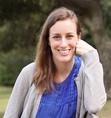Dallas Woodburn's Blog, page 14
June 19, 2012
Interview with Sarah Tate
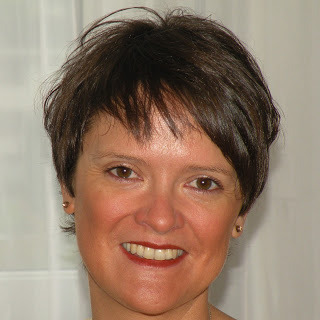
Sarah Tate is an English born mother of three who lives and works in Switzerland. She is the author of Web of Lies - My Life with a Narcissist, an autobiographical novel about living with a person with a personality disorder. Web of Lies takes the reader on an emotional journey, as Sarah describes in great detail how she was wooed by, fell for, and almost had her life destroyed by, a pathological personality. Dr David Holmes, leading forensic psychologist at the University of Manchester in England, has endorsed the book as being a valuable tool for anybody who may have found themselves involved with a narcissist or psychopath. Her second book, Renaissance - A Journal of Discovery, charts the progress of Sarah and her children as they escape from the deceit, and carve a new life for themselves alone. It details the road to recovery from psychological abuse.
Tell us about Web of Lies. What was your inspiration/motivation behind this book? Was it difficult to revisit these memories?
Web of Lies is an emotional rollercoaster which takes the reader on an incredible journey and gives a deep insight into what it’s like to be sucked into the world of a narcissistic psychopath, and moreover, how to escape.
Narcissists and sociopaths live amongst us, yet many people don’t even recognize their character traits and can be easily left distraught and confused thinking that they are the ones with the problem. By telling my story and sharing it with the world, I hoped to help other women (and men) who have fallen for the seemingly endless (yet superficial) charms of one of these individuals. This is not a self-help book, but an honest and emotional account of what it feels like to be entangled in the world of a person whose reality is different to our own. Leading psychologist Dr David Holmes recommends the book to his psychology students as an extremely valuable case study. Apart from being a gripping read, it’s an important book for all those who have suffered in an unhappy relationship.
I had been encouraged by friends and relatives to write down the extraordinary events which happened to myself and the children. I was doing some research on the web about the psychological effects may be for us, when I came across an article on NPD & APD. When I read the article I thought it had been written about my life! I realised then that I had a very important story to tell.
It was quite draining to re-live it all in such detail, and to be honest it was quite difficult to read it all back again when it was finished. The book is of course very condensed, you get six years put into twenty-four chapters, so of course it's more intense than it was in real life. I'm glad I wrote it though, as the feedback I've received has been overwhelming and made it all worthwhile.
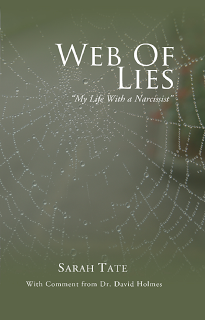
What was it like to publish a memoir? Was it a release? Freeing? Was there any anxiety in the publication process? Is publishing a memoir different from publishing fiction?
It was scary. You are laying bare some very raw and emotional events in your life and you don't know how they are going to be received by the readers. There was much trepidation at fist, but it helped that I had a strong belief in the book and it's message. I'd say it has been quite liberating, yes. I know I've helped people, as I get regular Emails to thank me for sharing my story. This has made it liberating for me. It's exactly what I wanted to achieve. I've not yet published my first novel so I can't say if it's a different process.
How did you get started writing?
Web of Lies was my first book, but I've always enjoyed writing and have written poetry and short stories for as long as I can remember.
What is your writing process like?
Computer. I plan out each chapter and exactly what I want it to achieve. I do this in some detail. Then, I go back and 'fill in the gaps'!
How do you get ideas for what you write?
Well, obviously the first two books are based on my own experience so that was easy! My third book is a novel called The Middle Aged Twist -- with this book I have used examples from real life as well as a lot of imagination. I'm really enjoying creating characters and watching them take on their own life in my mind.
What are some of your favorite books?
Anything by Stephen King, Emma Donoghue (in particular, Room), Jodie Piccoult or Patricia Cornwell. I love psychological thrillers or historical fiction, but I'm also not adverse to some chick lit from time to time!
What is your biggest advice for young people reaching for their dreams?
Go for it and believe! Keep trying and never give up. Don't let negative energy from others dissuade you. Remove negative energy from your life and stay focused!
Contact Sarah:
www.sarahtateauthor.com
http://singlemumsal.blogspot.ch/Dallas Woodburn
author, speaker, freelance writer
founder of Write On! Books and Write On! For Literacy
www.writeonbooks.org
http://dallaswoodburn.blogspot.com/
Published on June 19, 2012 23:55
June 6, 2012
Interview with Rebecca Guevara
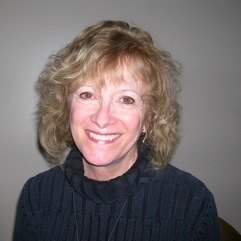
What would you like readers to know about you as an introduction?
When I first seriously started writing over ten years ago I did it only for myself to prove I could. Secretly I’d believed I could write since childhood, but I’d done little to make that happen. When my first book was published in 2006, and I experienced the heady excitement of signings, conference engagements, and best of all, compliments and encouragement on my writing, I wanted that to continue. Now I have learned more about the ebb and flow of writing, and I have returned to a quieter approach of genuinely enjoying the process while giving and gaining what I can. One way I keep myself connected is working with writers as they prepare their manuscripts. I have been able to help as mentor/coach and editor, and I find it very enjoyable.
Tell us about Blossoms of the Lower Branches. Was it difficult to revisit these memories?
At times. Over twenty years had passed since my brother took his life, so the immediate sharpness had subsided, but as you know, true writing unearths more than writers sometimes want. I didn’t want to tell my story. I wanted to explain how the classic hero’s journey, first explained in myth, can be used to deal with grief from the death of a loved one, and I wanted to make it a “paper,” or a “study” that would explain like a teacher in front of a classroom. I thought that approach would give the subject more respect. I soon realized it needed a sincere, true story to weave through it to make it real and usable for others. After all, my readers are suffering grievers, not professors giving me a grade.
What was it like to publish a memoir? Was it a release? Freeing? Was there any anxiety in the publication process? Is publishing a memoir different from publishing fiction?
Publishing a memoir has been different from fiction where it’s easy to hide behind, “It’s just a story!” whether that’s true or not. A surprise has been that I’m happy to talk about the idea I really do believe in with the hero’s journey as a grief recovery model, but I’ve been reluctant to encourage people I know to read it because it is personal. I was conflicted about putting my story out there, which is why I started trying to write a “paper.” I’d like to have anyone struggling with how to settle traumatic grief read it while keeping ear buds in my friends’ ears.
Was it a release? Not in the way many memoirs are because many memoirists are often writing to themselves for the first time. I had chewed over the issues in the book so often, for so long, that I had comfortably settled them, so it became closer to putting a period at the end of a last sentence, and closing the book before lending it to another.
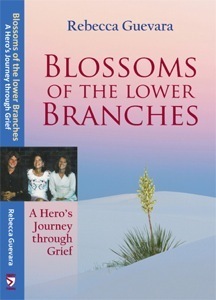
How did you get started writing?
First time: Fourth grade assignment when I wrote a two page love story and loved the process. That bout ended three years later with a puberty driven mania to write of a young girl who takes off to see the world. It started in Salt Lake City, where I lived, and traveled to San Francisco (Sounds like a bestseller, no?) where it abruptly stopped because I realized I knew nothing of China and I let it lock my creativity. Second time: When I wanted to expand my career and branch out to writing, I began interviewing and working for free lance articles. This bout ended when I was told of my brother’s death while I was having fun writing. I couldn’t settle how I’d been happy while he’d been so miserable. Third time: When I’d let so many years pass not doing something I thought I could be good at and I knew I had to try. Finally. Victory over myself in the third bout.
What is your writing process like?
I make notes in a small, carry around notebook, more notes in a spiral notebook, save clipped articles and related items of any kind in folders, and then I write on a computer. Next is revising for what can seem like forever. How do you get ideas for what you write? Ideas can seem to be in the air around me. Thoughts that sprout from nowhere, news stories, overheard conversations, a scene of people walking their dogs. Harnessing myself to develop them is often the harder task.
What are some of your favorite books?
As my eyes fall on them in my writing room, and in no particular order, books I have enjoyed are:
The Poisonwood Bible by Barbara KingsolverThe Science of Mind by Ernest HolmesWomen Who Run With the Wolves by Clarissa Pinkola EstesDown by the River by Charles BowdenMy Secret History by Paul TherouxThe Anthropology of Turquoise by Ellen MeloyLike Water for Chocolate by Laura EsquivelCrime and Punishment by DostoevskyWhat is your biggest advice for young people reaching for their dreams?
That’s a tough one because I think everyone is an individual who needs different things, and often things I can’t imagine. Through my life I have felt the forces of dreams, realities, and drives collide. Dreams can be irreplaceable inspirations, but dreamers then need to square that with the realities of what is required for the dream to be real, and then again look at how dreams and realities connect with personal drives. It is possible to dream of something, understand what it takes to get it and still have to deal with personal ambition or lack of it, inability to deal with fear, or a need for approval that kills dreams. Sometimes there is a lot to push through. Everyone needs to understand their own situation.
-------------------------------
Visit Rebecca's website
http://www.rebeccaguevara.com/Rebecca_Guevara/Home.html
Writing Waters Blog
http://thewritingwaters.wordpress.com/
Order her book on Amazon
http://www.amazon.com/Blossoms-Lower-Branches-Journey-Through/dp/0979395836/ref=sr_1_1?ie=UTF8&qid=1323386706&sr=8-1%20
Order her book through Barnes and Noble
http://www.barnesandnoble.com/w/blossoms-of-the-lower-branches-a-heros-journey-through-grief-rebecca-guevara/1105278836?ean=9780979395833&itm=1&usri=blossoms+of+the+lower+branches%2c+a+hero%27s+journey+through+griefDallas Woodburn
author, speaker, freelance writer
founder of Write On! Books and Write On! For Literacy
www.writeonbooks.org
http://dallaswoodburn.blogspot.com/
Published on June 06, 2012 00:00
Interview with Rebecca Guevera

What would you like readers to know about you as an introduction?
When I first seriously started writing over ten years ago I did it only for myself to prove I could. Secretly I’d believed I could write since childhood, but I’d done little to make that happen. When my first book was published in 2006, and I experienced the heady excitement of signings, conference engagements, and best of all, compliments and encouragement on my writing, I wanted that to continue. Now I have learned more about the ebb and flow of writing, and I have returned to a quieter approach of genuinely enjoying the process while giving and gaining what I can. One way I keep myself connected is working with writers as they prepare their manuscripts. I have been able to help as mentor/coach and editor, and I find it very enjoyable.
Tell us about Blossoms of the Lower Branches. Was it difficult to revisit these memories?
At times. Over twenty years had passed since my brother took his life, so the immediate sharpness had subsided, but as you know, true writing unearths more than writers sometimes want. I didn’t want to tell my story. I wanted to explain how the classic hero’s journey, first explained in myth, can be used to deal with grief from the death of a loved one, and I wanted to make it a “paper,” or a “study” that would explain like a teacher in front of a classroom. I thought that approach would give the subject more respect. I soon realized it needed a sincere, true story to weave through it to make it real and usable for others. After all, my readers are suffering grievers, not professors giving me a grade.
What was it like to publish a memoir? Was it a release? Freeing? Was there any anxiety in the publication process? Is publishing a memoir different from publishing fiction?
Publishing a memoir has been different from fiction where it’s easy to hide behind, “It’s just a story!” whether that’s true or not. A surprise has been that I’m happy to talk about the idea I really do believe in with the hero’s journey as a grief recovery model, but I’ve been reluctant to encourage people I know to read it because it is personal. I was conflicted about putting my story out there, which is why I started trying to write a “paper.” I’d like to have anyone struggling with how to settle traumatic grief read it while keeping ear buds in my friends’ ears.
Was it a release? Not in the way many memoirs are because many memoirists are often writing to themselves for the first time. I had chewed over the issues in the book so often, for so long, that I had comfortably settled them, so it became closer to putting a period at the end of a last sentence, and closing the book before lending it to another.

How did you get started writing?
First time: Fourth grade assignment when I wrote a two page love story and loved the process. That bout ended three years later with a puberty driven mania to write of a young girl who takes off to see the world. It started in Salt Lake City, where I lived, and traveled to San Francisco (Sounds like a bestseller, no?) where it abruptly stopped because I realized I knew nothing of China and I let it lock my creativity. Second time: When I wanted to expand my career and branch out to writing, I began interviewing and working for free lance articles. This bout ended when I was told of my brother’s death while I was having fun writing. I couldn’t settle how I’d been happy while he’d been so miserable. Third time: When I’d let so many years pass not doing something I thought I could be good at and I knew I had to try. Finally. Victory over myself in the third bout.
What is your writing process like?
I make notes in a small, carry around notebook, more notes in a spiral notebook, save clipped articles and related items of any kind in folders, and then I write on a computer. Next is revising for what can seem like forever. How do you get ideas for what you write? Ideas can seem to be in the air around me. Thoughts that sprout from nowhere, news stories, overheard conversations, a scene of people walking their dogs. Harnessing myself to develop them is often the harder task.
What are some of your favorite books?
As my eyes fall on them in my writing room, and in no particular order, books I have enjoyed are:
The Poisonwood Bible by Barbara KingsolverThe Science of Mind by Ernest HolmesWomen Who Run With the Wolves by Clarissa Pinkola EstesDown by the River by Charles BowdenMy Secret History by Paul TherouxThe Anthropology of Turquoise by Ellen MeloyLike Water for Chocolate by Laura EsquivelCrime and Punishment by DostoevskyWhat is your biggest advice for young people reaching for their dreams?
That’s a tough one because I think everyone is an individual who needs different things, and often things I can’t imagine. Through my life I have felt the forces of dreams, realities, and drives collide. Dreams can be irreplaceable inspirations, but dreamers then need to square that with the realities of what is required for the dream to be real, and then again look at how dreams and realities connect with personal drives. It is possible to dream of something, understand what it takes to get it and still have to deal with personal ambition or lack of it, inability to deal with fear, or a need for approval that kills dreams. Sometimes there is a lot to push through. Everyone needs to understand their own situation.
-------------------------------
Visit Rebecca's website
http://www.rebeccaguevara.com/Rebecca_Guevara/Home.html
Writing Waters Blog
http://thewritingwaters.wordpress.com/
Order her book on Amazon
http://www.amazon.com/Blossoms-Lower-Branches-Journey-Through/dp/0979395836/ref=sr_1_1?ie=UTF8&qid=1323386706&sr=8-1
Order her book through Barnes and Noble
http://www.barnesandnoble.com/w/blossoms-of-the-lower-branches-a-heros-journey-through-grief-rebecca-guevara/1105278836?ean=9780979395833&itm=1&usri=blossoms+of+the+lower+branches%2c+a+hero%27s+journey+through+griefDallas Woodburn
author, speaker, freelance writer
founder of Write On! Books and Write On! For Literacy
www.writeonbooks.org
http://dallaswoodburn.blogspot.com/
Published on June 06, 2012 00:00
June 4, 2012
Poem by Sidney Hirschman
I am thrilled to present to you today a new poem by Sidney Hirschman, a young author featured in the Write On! Books anthology Dancing With The Pen: a collection of today's best youth writing.
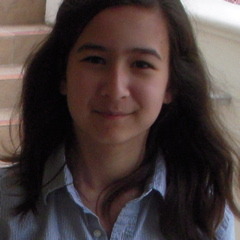
Sidney Hirschman is 12 years old and is going into 7th grade this fall at the Nueva School in California. She enjoys writing, singing, playing guitar, and Minecraft.
I’ve Got a Horse by Sidney Hirschman
Rhythm Of the beatOf the trail so slow,Clippin’And a-cloppin’Lis’tnin’ to the world grow.Singin’And a-songin’To the heartbeat of the earth,Thinkin’And a-pond’rin’Wondering what my life is worth.Creakin’And a-crackin’From the bones in my back,Weepin’And a-warpin’Is the sky so black.Clearin’And a-cloudin’Is the attic of my mind,I’ll rideAnd keep on riding,And I’ll see what I can find.
Dallas Woodburn
author, speaker, freelance writer
founder of Write On! Books and Write On! For Literacy
www.writeonbooks.org
http://dallaswoodburn.blogspot.com/

Sidney Hirschman is 12 years old and is going into 7th grade this fall at the Nueva School in California. She enjoys writing, singing, playing guitar, and Minecraft.
I’ve Got a Horse by Sidney Hirschman
Rhythm Of the beatOf the trail so slow,Clippin’And a-cloppin’Lis’tnin’ to the world grow.Singin’And a-songin’To the heartbeat of the earth,Thinkin’And a-pond’rin’Wondering what my life is worth.Creakin’And a-crackin’From the bones in my back,Weepin’And a-warpin’Is the sky so black.Clearin’And a-cloudin’Is the attic of my mind,I’ll rideAnd keep on riding,And I’ll see what I can find.
Dallas Woodburn
author, speaker, freelance writer
founder of Write On! Books and Write On! For Literacy
www.writeonbooks.org
http://dallaswoodburn.blogspot.com/
Published on June 04, 2012 00:00
June 1, 2012
Great advice from Audie Cornish
Browsing through the June 2012 issue of Glamour magazine, I came across an article filled with advice for "how to master an entry-level job (or, well, any job) in a crazy-tough economy" by Lilit Marcus. All of the advice was useful:
"Don't just learn your job, learn what others do too" from news anchor Erin Burnett"Realize that you have to earn people's respect" from Mandana Dayani, vice president of Rachel Zoe Inc."Find balance now, not later" from Sue Naegle, president of HBO EntertainmentI think the advice I found most useful came from Audie Cornish, cohost of the National Public Radio show All Things Considered. She said, "A lot of people I am in touch with now in my career are people I'd asked for help when I was in my first job as an assistant news-writer at a public radio station in Boston. It's easy to be intimidated by big voices, but when you're just starting out, you have the unique license to open any door in the company and ask, 'How do I get to do what you do?' People love being asked for advice. It shows you respect what they do."
No matter where you are in your career, it's never too late to ask for advice. Why not pick up a pen or open an email window and write to someone in your field who you admire?
Whenever I finish a book I love, I always take a few minutes to Google their name, find their website, and zip them an email. I tell them what I loved about the book and also ask if they have any advice for me as I work to build my own writing career. Not only have I received wonderful words of wisdom and encouragement, I have even been able to forge friendships with writers from all around the world -- novelists, playwrights, memoirists, poets. These are people who I admire greatly, who enrich my life, who make me feel like I'm not alone when I spend my days pounding out words on the computer.
Now I've even started receiving the occasional email from young writers asking me for advice, and they make my day! I am always so delighted and excited to strike up conversations with new writer friends.Dallas Woodburn
author, speaker, freelance writer
founder of Write On! Books and Write On! For Literacy
www.writeonbooks.org
http://dallaswoodburn.blogspot.com/
"Don't just learn your job, learn what others do too" from news anchor Erin Burnett"Realize that you have to earn people's respect" from Mandana Dayani, vice president of Rachel Zoe Inc."Find balance now, not later" from Sue Naegle, president of HBO EntertainmentI think the advice I found most useful came from Audie Cornish, cohost of the National Public Radio show All Things Considered. She said, "A lot of people I am in touch with now in my career are people I'd asked for help when I was in my first job as an assistant news-writer at a public radio station in Boston. It's easy to be intimidated by big voices, but when you're just starting out, you have the unique license to open any door in the company and ask, 'How do I get to do what you do?' People love being asked for advice. It shows you respect what they do."
No matter where you are in your career, it's never too late to ask for advice. Why not pick up a pen or open an email window and write to someone in your field who you admire?
Whenever I finish a book I love, I always take a few minutes to Google their name, find their website, and zip them an email. I tell them what I loved about the book and also ask if they have any advice for me as I work to build my own writing career. Not only have I received wonderful words of wisdom and encouragement, I have even been able to forge friendships with writers from all around the world -- novelists, playwrights, memoirists, poets. These are people who I admire greatly, who enrich my life, who make me feel like I'm not alone when I spend my days pounding out words on the computer.
Now I've even started receiving the occasional email from young writers asking me for advice, and they make my day! I am always so delighted and excited to strike up conversations with new writer friends.Dallas Woodburn
author, speaker, freelance writer
founder of Write On! Books and Write On! For Literacy
www.writeonbooks.org
http://dallaswoodburn.blogspot.com/
Published on June 01, 2012 00:30
May 30, 2012
Interview with Margo Candela
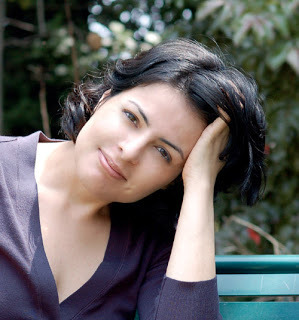
I am so delighted to have the fantastic writer Margo Candela as our guest today! She is the author of The Brenda Diaries (SugarMissile, Oct. '11) Good-bye To All That (Touchstone, July '10), More Than This (Touchstone, Aug '08), Life Over Easy (Kensington, Oct '07), Underneath It All (Kensington, Jan '07) and the short story and essay collection, Life Observed (June '11). More Than This was a Target stores Breakout Book and an American Association of Publishers national book club selection at Borders Books. Good-bye To All That was the only novel picked by Los Angeles Magazine for its 2010 Best of L.A. list.
I have been an avid Twitter follower of Margo for quite a while now -- she is always full of great advice and inspiration! If you are on Twitter, I would definitely recommend following Margo @MargoCandela and @BrendaDiaries. Read on for Margo's insights about filling the idea well, venturing into e-book publishing, and the merits of creating an outline for your book.
What would you like readers to know about you as an introduction?
I write novels that feature funny, smart, decent but flawed characters because I find those kinds of people interesting. I usually write with the radio or a movie playing in the background because I grew up in a big, noisy family and it helps me focus rather than distracts me. When I’m stuck on a plot point or not feeling inspired, I do something that is as far away from writing as possible like vacuuming.
Tell us about The Brenda Diaries. What was your inspiration/motivation behind this book?
I have a real fascination with work and how people identify with what they do for a living. When I was writing The Brenda Diaries I wanted to explore a character whose genuinely enjoys working, but isn’t ready to settle into a career.
What has it been like to venture into e-book publishing? Any advice for other authors?
It’s essential that the final product to be as professional looking as possible. I work with cover designer, ask for feedback on the last draft and, most importantly, hire a copy editor because I know I can’t and shouldn’t copy edit my own work. It’s a lot of work, but there’s also a lot of freedom that comes with e-book publishing.
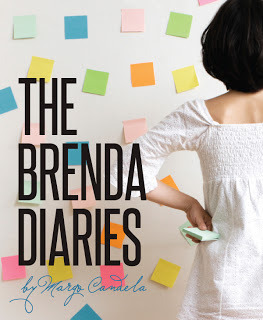
How did you get started writing?
I’ve always been a voracious reader, but never imagined writing would be something I’d do professionally. As a teen, I’d write short stories just for fun, but it wasn’t until I joined the staff of community college newspaper that I saw that writing as a career was a real option for me to pursue.
What is your writing process like?
Once I have an idea that I believe has real potential, I commit to writing a chapter-by-chapter outline. It makes the process of actually writing the novel much more manageable. Plus, it forces me to see if there’s enough to idea to turn it into a story that has a beginning, middle and end.
I always write on a computer, my penmanship is atrocious, and write my first draft knowing there will be at least three others before I get to a final polish. I set word count goals and deadlines to keep myself on track.
How do you get ideas for what you write?
I get most of my ideas when I’m not forcing myself to come up with them. I read tons of magazines and am always keeping an ear and eye out for quirky things. The rest is just having a good imagination and the willingness to do the work to turn that idea into a novel.
What are some of your favorite books?
My all-time favorite book is Norton Juster’s The Phantom Tollbooth. I read it at least once a year just for fun. Anne Tyler has written more than a few books that I love including Celestial Navigations.
What is your biggest advice for young people reaching for their dreams?
There’s no way of getting out of doing the actual hard work to achieve a goal. It takes time, discipline and perseverance to achieve anything in life.
-------------------------Visit Margo's website at www.margocandela.com
She's on Facebook at https://www.facebook.com/margocandela
Follow Margo on Twitter @MargoCandela and @BrendaDiariesDallas Woodburn
author, speaker, freelance writer
founder of Write On! Books and Write On! For Literacy
www.writeonbooks.org
http://dallaswoodburn.blogspot.com/
Published on May 30, 2012 02:00
May 16, 2012
Interview with Aaron L.
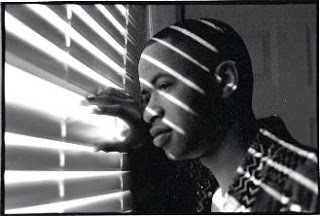
Aaron L might be a newcomer to the creation of fiction but is not one when it comes to the arts and all things creative. Growing up in places from Seattle to South Africa, he spent a lot of his time drawing. Aaron always knew that his future lay in a creative field. In 2010, he graduated from the University of Illinois with a degree in graphic design. Although the usual application of this degree is in the creation of different types of art and design, Aaron chose instead to focus his creative skills on the task of storytelling. He lives near Chicago, Illinois.
What would you like readers to know about you as an introduction?
When I began my journey into creating my novel Light Under the House, I only had a germ of a plot and not much else. I was a college drop out at the time and didnt have much going for me. I had also sown a lot of seeds into endeavors that turned out to be useless. I had a mountain of wasted opportunity and regrets piled up. I wasnt a trained expert in any field. What did I know? Then again, I did know a few things I knew about rejection. I knew about the loss of friendship. I knew about living with frustration, anger, and fear. I knew what it was like to struggle with addiction. I knew those things. I knew I had a story to tell.
Tell us about Light Under the House. What was your inspiration/motivation behind this book?
I feel very stongly about the breakdown of the family and how there is much dysfunction and despair because of it. I wanted to tell a story to shed some light on the situations that many face and hopefully bring some type of reversal to the current dynamic in whatever small way I could. I also wanted to do this while providing a fantastic read. I wanted to challenge men, fathers especially, to be who they were created to be....its certainly a challenge I face myself daily. A challenge that I often fail at but keep picking myself up to start again. So I asked myself, what does it look like to fail and come back again? What does faith in action look like? As I started to ask myself these questions, the novel grew and so did I.
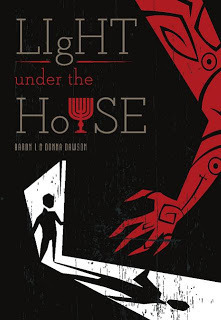 What have you learned through writing this book?
What have you learned through writing this book? If you want to challenge the reader, you have to challenge yourself. Light Under the House is a novel about character. I knew I wanted to be better. A better brother, son, friend, a better man. If I didnt find it challenging, I was certain no one else would. Dont be afraid to be open and generous. Ive learned not be afraid to talk about issues through my story and its characters that are personal me and my struggles. Our scars are just proof that we're still alive; we can show them.
How did you get started writing?
I'm not so much of a writer as I am a storyteller. I had lots of help from my co-author in the writing of this novel but its my story.
What is your writing process like? How do you get the ideas for what you write?
I start with a problem that thats been on my mind or an issue i want to address and spend a great deal of time thinking about how I can address it in story form. I use drawings and a notebook to write down what I come up with and try to look at the problem from a unique point of view. I think that the best stories always relate in some way back to real life..if not, its just entertainment. Even fantasy stories where the hero fights the dragon should make you think about the dragons in your own life and how to overcome them. I want people to able to take away something when they have finished reading.
What is your biggest advice for other writers and young people reaching for their dreams?
Everyone has a strength; let yours shine. Dont get me wrong; its not all pain. Ive lived a very blessed life. While it was true that I didnt have much technical expertise, I did have life experience. By the time fifteen I had lived in numerous places in the U.S. and abroad. I had been around the world. I had diverse experiences to draw upon in dealing with people and life. It also helped to hone a unique perspective which I hope can be a resource to others. What can you use?
Is there anything else you would like to add?
I used many things to model the characters: people I know, other literary figures, actors, biblical characters, celebrities ... the characters are a combination of all of these. I wanted them to be new and familiar, and at the same time universal.
Order Light Under the House on Amazon: http://www.amazon.com/Light-Under-the-House-ebook/dp/B0060C2O92Dallas Woodburn
author, speaker, freelance writer
founder of Write On! Books and Write On! For Literacy
www.writeonbooks.org
http://dallaswoodburn.blogspot.com/
Published on May 16, 2012 20:41
May 14, 2012
Some of my Favorite Quotes for Graduation
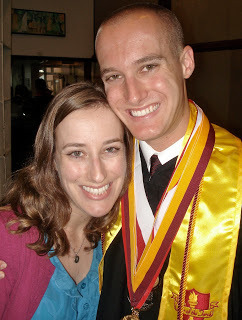
It's graduation season, and I was honored to attend my younger brother Greg's graduation from USC last week. I was so inspired by all the good works, brilliance, determination, and giving spirit I witnessed in the graduates I met. The energy in the air was contagious, and I left feeling inspired to dream bigger, reach higher, give more and do more every day to make this world a better place.
Here are some of my favorite quotes to inspire you to do the same!
"Make each day your masterpiece." -- Coach John Wooden
"Hitch your wagon to a star." -- Ralph Waldo Emerson
"Wherever you go, go with all your heart." -- Confucius
"Believe & achieve!" -- Deena Kastor
"Don't judge each day by the harvest you reap but by the seeds that you plant." -- Robert Louis Stevenson
"Try not to become a [person] of success, but rather try to become a [person] of value." -- Albert Einstein
"Wherever you go, no matter what the weather, always bring your own sunshine." -- Anthony J. D'Angelo
"Think big thoughts but relish small pleasures." -- H. Jackson Brown, Jr.
"Patience is a bitter seed that bears sweet fruit." -- Greg Woodburn
"It takes courage to grow up and become who you really are." -- e.e. cummings
"You have brains in your head.
You have feet in your shoes.
You can steer yourself in any direction you choose.
You're on your own.
And you know what you know.
You are the guy who'll decide where to go."
-- Dr. SeussDallas Woodburn
author, speaker, freelance writer
founder of Write On! Books and Write On! For Literacy
www.writeonbooks.org
http://dallaswoodburn.blogspot.com/
Published on May 14, 2012 17:16
May 9, 2012
Interview with YA author Melissa Conway
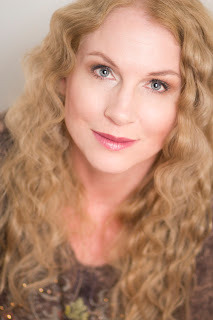 Today I am honored to feature Melissa Conway on the blog! She is the author of four young adult ebooks, the latest of which, Xenofreak Nation, she'll be discussing here today. Melissa is the founder of the book review site Booksquawk. Her website is here, her YouTube channel here, she blogs at Whimsilly and can be found on Facebookand Twitter.
Today I am honored to feature Melissa Conway on the blog! She is the author of four young adult ebooks, the latest of which, Xenofreak Nation, she'll be discussing here today. Melissa is the founder of the book review site Booksquawk. Her website is here, her YouTube channel here, she blogs at Whimsilly and can be found on Facebookand Twitter.Thanks so much for taking the time to be here today! What would you like readers to know about you as an introduction? I’d like my readers to know how much I appreciate that they chose my book. Beginning any book is not only a time commitment; it’s an investment that the reader hopes will pay off emotionally. I strive to produce work that will take them on a satisfying journey, and it’s especially gratifying when they take the extra time to give me feedback.
Tell us about Xenofreak Nation. What was your inspiration/motivation behind this book? The story alternates between the two central characters, Bryn Vega, the daughter of the head of the Pure Human Society, and Scott Harding, an Xbestia gang member who is really an undercover agent for the XIA. At its heart, Xenofreak Nation is both a love story and an exploration of ethics set in the near future in a world mired in a deep economic depression where government decision-making has ground to a halt. Authorities have failed to regulate the medical practice of bioengineering animals to be compatible with humans for organ transplantation. Rogue xenosurgeons are responsible for the development of an underground sub-culture derogatorily referred to as Xenofreaks, who have replaced tattoos with grafts of bioengineered animal skin, teeth, horns and even tails and wings. When Bryn is kidnapped as retaliation for her father’s anti-xeno activities, she’s thrust into this frightening world. Scott is torn between his duty and his developing feelings for innocent Bryn.
What have you learned through writing this book? I don’t know that I learned anything exactly...but certainly the story opened up a way for me to communicate a concept we are all familiar with: that there are two sides to every story. Given the state of the world, it can’t hurt to emphasize cultural tolerance!
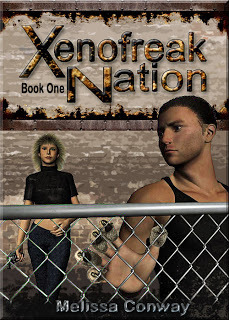 How did you get started writing? My family was poor, so the library was a big source of entertainment. And since I was shy, writing was one way for me to express myself. I wrote a silly poem in the fourth grade that my teacher submitted to a contest in the local paper. When I won, it was the first time I felt as if my writing had merit. I admire teachers in general, but good teachers, the ones who take that extra step to encourage children to flourish, they are my heroes.
How did you get started writing? My family was poor, so the library was a big source of entertainment. And since I was shy, writing was one way for me to express myself. I wrote a silly poem in the fourth grade that my teacher submitted to a contest in the local paper. When I won, it was the first time I felt as if my writing had merit. I admire teachers in general, but good teachers, the ones who take that extra step to encourage children to flourish, they are my heroes.What is your writing process like? I’m kind of embarrassed to admit I find it hard to write unless the house is clean and all chores attended to. But I have this great set-up in the living room -- I sit in a La-Z-Boy with my PC discreetly hidden in a cabinet next to it. My monitor is mounted on a swing arm so I don’t have to turn my head, I set my wireless keyboard in my lap, and my wireless mouse rests on the arm of the chair. Very comfy! I do like to see my characters not just in my mind's eye, so I use DAZ Studio to create them. Then I can put them in my book trailers, too, like the one I made for XN, here. How do you get ideas for what you write? My young son, with his limitless imagination, is constantly beginning his sentences with, “What if..?” The other day, I realized that’s how my ideas start, too. A little spark of curiosity about something -- almost anything -- will set my mind on that “What if..?” path, and the next thing I know, I’m actively plotting.
What are some of your favorite books? I’ve made an effort to give new authors a chance this year and have discovered some great new voices: Rebecca Lochlann’s Child of the Erinyes series and J.S. Colley’s debut novel, The Halo Revelations, to name just a few. What is your biggest advice for young people reaching for their dreams? First of all, I wouldn’t restrict my advice to young people! Whatever your age, it’s good to have dreams. Learn your craft, set goals, and follow through. Try not to let criticism slow you down too much. Filter the useful from the not-so-much. My personal mantra is: “You can’t please everyone.”
Dallas Woodburn
author, speaker, freelance writer
founder of Write On! Books and Write On! For Literacy
www.writeonbooks.org
http://dallaswoodburn.blogspot.com/
Published on May 09, 2012 17:33
May 7, 2012
Guest Post by Nadia Jones
Please try again: A call for writers to brave rejection
I may be preaching to the choir here when I say this, but writers don’t have it easy. Sure, it’s a job that requires little to no physical exertion and pop culture has a knack for glamorizing the profession to look like a dream gig, but any real writer will tell you that it’s no picnic to do what we do. All day we try to make something from nothing, not only putting thousands of words to paper (or word document), but also combining those words in such a way so as to elicit specific responses from a potential reader. We inform, we entertain, and we (aspire to) provoke the most inspiring thoughts with our writing.
For all the work and effort put into it, writing is an enterprise fraught with rejection and drawbacks, mostly when writers want to get their work published. Countless novels, manuscripts, articles, and essays get rejected from publishing houses, magazines, and production companies every day—the pieces rejected daily could fill whole houses. Hundreds of hours might go into an author’s construction of a piece of writing, and most understand that their work has a better chance of getting rejected than any other outcome.
Yet writers continue to write, pressing on because there’s always a chance that the next submission will be the one that gives them their big break. This is the best advice I can give you on the subject of rejection: please try again. If you don’t, then you’ll never allow yourself the chance of getting published.
The stories of famous writers continuing to submit their work despite constant rejections are legion. When trying the initial volume of her now infamous Harry Potter series published, J.K. Rowling was famously rejected on multiple occasions by big-wig publishing companies like Harper Collins before landing with the relatively small and quiet Bloomsbury publishing house. Stephen King was similarly rejected by numerous publishing companies when he first began submitting manuscripts, and now he is one of the most prolific and well respected writers in his genre. Even the literary darling of a novel Lolita by Vladimir Nabokov was roundly rejected for its controversial content, only to become a great success later.
If there’s anything to learn from these authors, it’s that they persevered to get their work published despite the chorus of naysayers. It’s easy to see how these giants of fiction were published now that we know there work, but it’s not as easy to imagine them as destitute writers just looking for a way to share their stories with a wider audience. I try to keep things in perspective whenever my work faces rejection; I tell myself that (probably) every writer in the history of the craft has experienced rejection and even ridicule at one point or another. Rejection is merely an opportunity to hone your craft and try again.
So I challenge you, my dear fellow writer, to think of the failed starts and drawbacks of your predecessors whenever you experience rejection. I challenge you to not think of it as the end of the world, but as a temporary detour from a grand future that could happen if you persist.
Author Bio:This is a guest post by Nadia Jones who blogs at accredited online colleges about education, college, student, teacher, money saving, movie related topics. You can reach her at nadia.jones5 @ gmail.com.Dallas Woodburn
author, speaker, freelance writer
founder of Write On! Books and Write On! For Literacy
www.writeonbooks.org
http://dallaswoodburn.blogspot.com/
I may be preaching to the choir here when I say this, but writers don’t have it easy. Sure, it’s a job that requires little to no physical exertion and pop culture has a knack for glamorizing the profession to look like a dream gig, but any real writer will tell you that it’s no picnic to do what we do. All day we try to make something from nothing, not only putting thousands of words to paper (or word document), but also combining those words in such a way so as to elicit specific responses from a potential reader. We inform, we entertain, and we (aspire to) provoke the most inspiring thoughts with our writing.
For all the work and effort put into it, writing is an enterprise fraught with rejection and drawbacks, mostly when writers want to get their work published. Countless novels, manuscripts, articles, and essays get rejected from publishing houses, magazines, and production companies every day—the pieces rejected daily could fill whole houses. Hundreds of hours might go into an author’s construction of a piece of writing, and most understand that their work has a better chance of getting rejected than any other outcome.
Yet writers continue to write, pressing on because there’s always a chance that the next submission will be the one that gives them their big break. This is the best advice I can give you on the subject of rejection: please try again. If you don’t, then you’ll never allow yourself the chance of getting published.
The stories of famous writers continuing to submit their work despite constant rejections are legion. When trying the initial volume of her now infamous Harry Potter series published, J.K. Rowling was famously rejected on multiple occasions by big-wig publishing companies like Harper Collins before landing with the relatively small and quiet Bloomsbury publishing house. Stephen King was similarly rejected by numerous publishing companies when he first began submitting manuscripts, and now he is one of the most prolific and well respected writers in his genre. Even the literary darling of a novel Lolita by Vladimir Nabokov was roundly rejected for its controversial content, only to become a great success later.
If there’s anything to learn from these authors, it’s that they persevered to get their work published despite the chorus of naysayers. It’s easy to see how these giants of fiction were published now that we know there work, but it’s not as easy to imagine them as destitute writers just looking for a way to share their stories with a wider audience. I try to keep things in perspective whenever my work faces rejection; I tell myself that (probably) every writer in the history of the craft has experienced rejection and even ridicule at one point or another. Rejection is merely an opportunity to hone your craft and try again.
So I challenge you, my dear fellow writer, to think of the failed starts and drawbacks of your predecessors whenever you experience rejection. I challenge you to not think of it as the end of the world, but as a temporary detour from a grand future that could happen if you persist.
Author Bio:This is a guest post by Nadia Jones who blogs at accredited online colleges about education, college, student, teacher, money saving, movie related topics. You can reach her at nadia.jones5 @ gmail.com.Dallas Woodburn
author, speaker, freelance writer
founder of Write On! Books and Write On! For Literacy
www.writeonbooks.org
http://dallaswoodburn.blogspot.com/
Published on May 07, 2012 05:30

